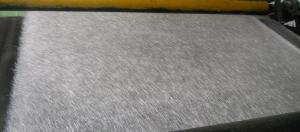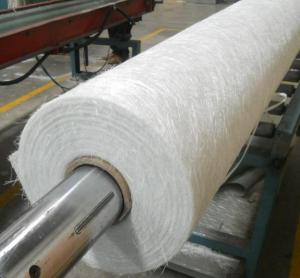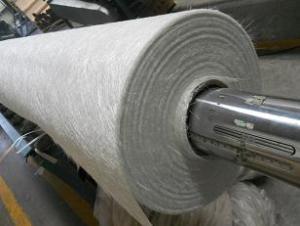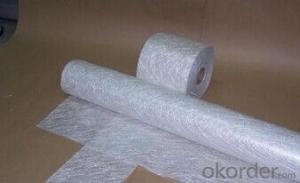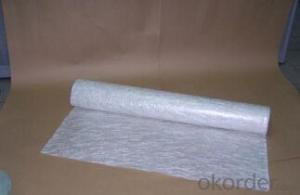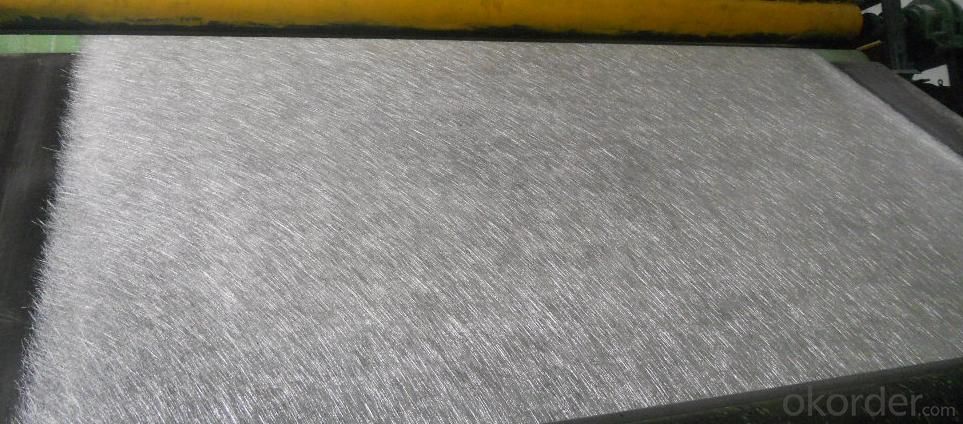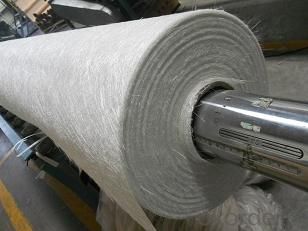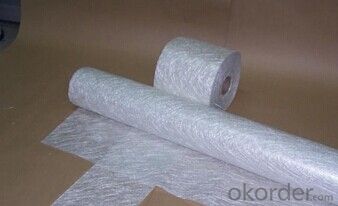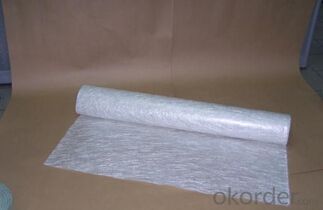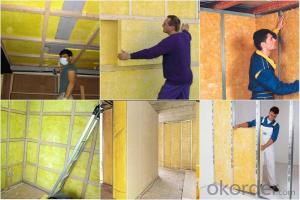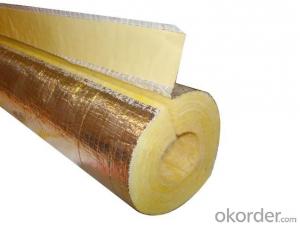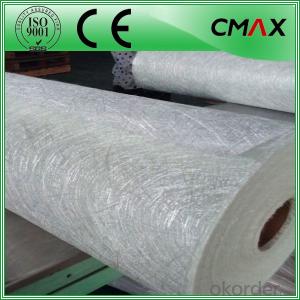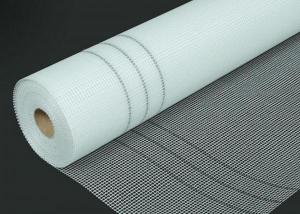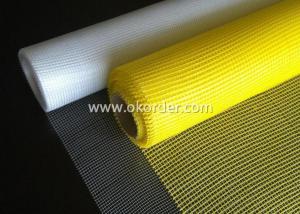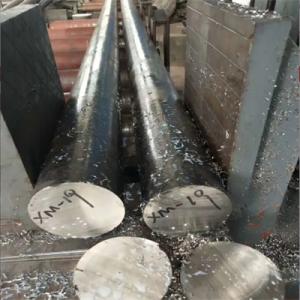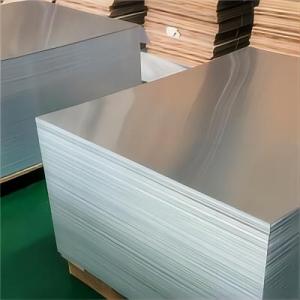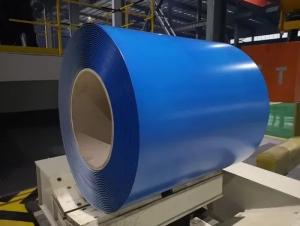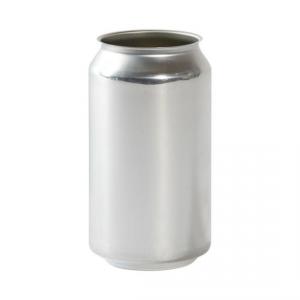Fiberglass Mat Tissue - E-Glass Chopped Strand Mat Emission, 1250mm
- Loading Port:
- Shanghai
- Payment Terms:
- TT or LC
- Min Order Qty:
- 20000 kg
- Supply Capability:
- 500000 kg/month
OKorder Service Pledge
OKorder Financial Service
You Might Also Like
1.Introductions
Glass Fiber Powder Binder Chopped Strand Mat is an unwoven fabrics consisting of randomly distributed chopped strands held together with powder binder.Powder Chopped Strand Mats are compatible with unsaturated polyester, vinyl ester, phenol and epoxy resins.
2.Main Features of E-glass Chopped Strand Mat
Strong bond fibers,providing high dimensional stability ans easy handing .
Good moldability,fast and complete resin wet-out ,enabling high productively .
Good transporsision and hign strength of the composite products.
Even thickness ,no fuzz ,no stain.
Fast wet-out ,products with high strength ,little loss for strength in damp situation.
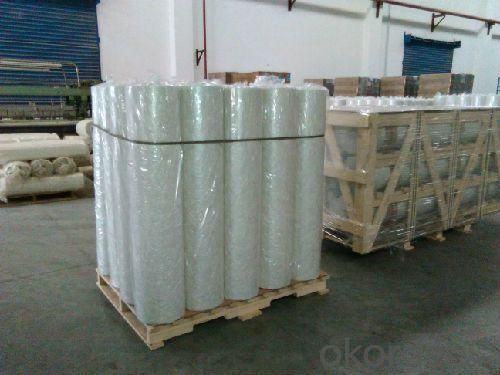
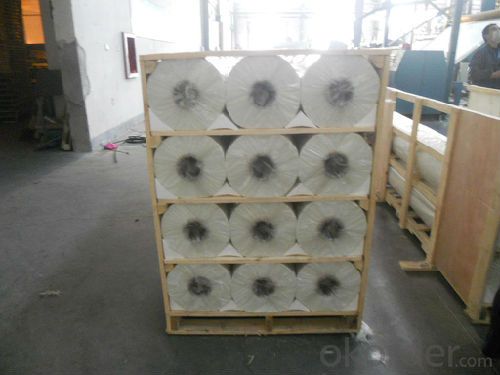
3.Technical Specification
Property | Glass type | Weight(g/m2) | Width 200~3300 | Roll Weight | Moisture Content /% | Combustible Content /% | Breakage Strength /N |
Test Method | GB/T 1549 | ISO3374:2000 | ISO3374 | GB/T17470-1998 | ISO3344:1997 | ISO1887:1995 | ISO3342 |
EMC 80 | E-GLASS | 80±16 | ±5 | 6~50 | <0.2 | 13.6±0.35 | ≥200 |
EMC 100 | E-GLASS | 100±10 | ±5 | 6~65 | <0.2 | 9.5±0.35 | ≥170 |
EMC 150 | E-GLASS | 150±15 | ±5 | 6~97 | <0.2 | 8.0±0.35 | ≥40 |
EMC 225 | E-GLASS | 225±22 | ±5 | 6~150 | <0.2 | 5.0±0.6 | ≥60 |
EMC 300 | E-GLASS | 300±30 | ±5 | 6~180 | <0.2 | 4.0±0.6 | ≥90 |
EMC 450 | E-GLASS | 450±45 | ±5 | 6~180 | <0.2 | 3.8±0.6 | ≥120 |
EMC 600 | E-GLASS | 600±60 | ±5 | 6~240 | <0.2 | 3.6±0.6 | ≥150 |
EMC 900 | E-GLASS | 900±90 | ±5 | 6~190 | <0.2 | 3.4±0.6 | ≥180 |
4.FAQ
(1)Why Choose us?
CNBM is a stated own company, provide the guarantee for the best quality, best service and safety business.
(2)How will we guarantee the quality?
a, ISO 9001-2008 quality control system;
b, Strict and regular quality control in production;
c, Inspeciation when loading into container before shippment;
d, Sample stock for one year for quality tracing and record.
(3) What is your MOQ?
Our MOQ is one pallet.
(4)Can you provide sample?
Yes, samples are in stock. we can offer free sample for you.
(5)Payment terms?
We can accept L/C, T/T etc.
- Q:Can fiberglass mat tissue be used in corrosive environments?
- Fiberglass mat tissue can be used in corrosive environments to some extent, but its resistance to corrosion depends on the specific composition and quality of the material. Fiberglass mat tissue is typically manufactured using a combination of fiberglass strands and a binder material. While fiberglass itself is generally resistant to corrosion, the binder material used in the mat tissue can vary and affect its resistance to corrosive environments. Some binders may provide better protection against corrosion, while others may be more susceptible to degradation. To enhance the corrosion resistance of fiberglass mat tissue in corrosive environments, additional protective coatings or treatments can be applied. These coatings can provide a barrier against the corrosive elements and extend the lifespan of the material. It is important to consider the specific corrosive environment and consult with experts or manufacturers to determine the suitability of fiberglass mat tissue for a particular application. They can provide guidance on the ideal composition, treatment, and any necessary precautions to ensure optimal performance and durability in corrosive environments.
- Q:Is fiberglass mat tissue suitable for insulation in high-rise buildings?
- Yes, fiberglass mat tissue is suitable for insulation in high-rise buildings. It is commonly used as an insulating material due to its excellent thermal and sound insulation properties. Fiberglass mat tissue is lightweight, fire-resistant, and has a high melting point, making it a safe and effective choice for insulating high-rise buildings. Additionally, it is easy to install and offers good resistance against moisture and mold, ensuring long-term performance and energy efficiency.
- Q:Is fiberglass mat tissue suitable for marine applications?
- Yes, fiberglass mat tissue is suitable for marine applications. It is commonly used in boat building and repair due to its excellent strength, durability, and resistance to water and corrosion. It provides reinforcement and protection against impacts, moisture, and harsh marine environments.
- Q:How is fiberglass mat tissue used in the production of storage sheds?
- The production of storage sheds commonly utilizes fiberglass mat tissue due to its exceptional strength and durability. This material is typically employed as a reinforcement to enhance the structural integrity of the shed's walls, roof, and floor. During manufacturing, fiberglass mat tissue is frequently applied to both the exterior and interior surfaces of the shed. It is initially impregnated with a binding resin, usually polyester or epoxy. The resin-soaked fiberglass mat tissue is then layered onto the shed's panels or molds. Once in position, the resin is cured, either through heat application or a chemical reaction, which solidifies the material. This process creates a rigid, lightweight composite structure that is highly resistant to cracking, warping, and rotting, as well as being weather-resistant. The fiberglass mat tissue acts as a reinforcing layer, providing additional strength and stability to the shed. It helps evenly distribute loads across the structure, making it more resistant to impacts and external forces. Additionally, it prevents the shedding of particles, enhancing the overall appearance and cleanliness of the shed. Moreover, fiberglass mat tissue offers excellent thermal insulation. This insulation helps regulate the shed's temperature, keeping it cool in the summer and warm in the colder months. It also reduces energy costs by minimizing heat transfer. In conclusion, the inclusion of fiberglass mat tissue significantly improves the durability, strength, and insulation capabilities of storage sheds. It ensures a long-lasting and reliable structure that can withstand various weather conditions while providing a comfortable and secure storage space.
- Q:Does fiberglass mat tissue provide good acoustical performance?
- Fiberglass mat tissue does provide good acoustical performance. Due to its composition, which includes fine glass fibers, this material is effective in absorbing sound waves and reducing echo and reverberation in a space. Fiberglass mat tissue has excellent sound absorption properties, making it suitable for applications in various industries such as construction, automotive, and aerospace. Its ability to dampen sound and improve acoustics makes it a popular choice for soundproofing walls, ceilings, and floors in buildings. Additionally, fiberglass mat tissue is lightweight and easy to install, further enhancing its appeal for acoustical applications.
- Q:What are the typical mechanical properties of fiberglass mat tissue?
- The typical mechanical properties of fiberglass mat tissue include high strength, excellent tensile and tear resistance, good dimensional stability, and low elongation. Additionally, it has a high modulus of elasticity and is resistant to corrosion, chemicals, and moisture.
- Q:Does fiberglass mat tissue require any special precautions during handling?
- Yes, fiberglass mat tissue does require some special precautions during handling. Fiberglass mat tissue is made up of tiny glass fibers that can cause irritation to the skin, eyes, and respiratory system if not handled properly. It is important to wear protective clothing, such as gloves, long sleeves, and goggles, to minimize direct contact with the skin and eyes. Additionally, it is advisable to work in a well-ventilated area or wear a respirator to prevent inhaling the airborne fiberglass particles. It is also recommended to handle fiberglass mat tissue gently to avoid breaking the fibers and creating more airborne particles. Overall, taking these precautions will help minimize the potential health risks associated with handling fiberglass mat tissue.
- Q:What are the different surface textures available for fiberglass mat tissue?
- There are several different surface textures available for fiberglass mat tissue. One common texture is a smooth surface, which is often used for applications that require a sleek and polished finish. This texture is achieved by using a smooth roller or mold during the manufacturing process, resulting in a flat and even surface. Another texture option is a coarse or rough surface, which is suitable for applications that require enhanced adhesion. This texture is achieved by using a textured roller or mold during manufacturing, creating a surface with small bumps or ridges that provide increased surface area for better bonding with adhesives or coatings. A third texture option is a patterned or embossed surface, which is used for applications that require aesthetic appeal or enhanced grip. This texture is achieved by using a patterned roller or mold during manufacturing, resulting in a surface with raised or recessed designs that can be visually appealing or provide added traction when used on flooring or decking materials. Additionally, manufacturers can customize the surface texture of fiberglass mat tissue to meet specific requirements. This can include creating a textured surface with specific patterns or designs to suit individual needs or preferences. Overall, the different surface textures available for fiberglass mat tissue allow for a wide range of applications, providing options for smooth finishes, enhanced adhesion, aesthetic appeal, or improved grip.
- Q:Does fiberglass mat tissue provide good fire protection?
- No, fiberglass mat tissue does not provide good fire protection.
- Q:Is fiberglass mat tissue resistant to UV degradation?
- Yes, fiberglass mat tissue is generally resistant to UV degradation. The material is designed to withstand exposure to sunlight and does not easily degrade or deteriorate due to UV radiation.
1. Manufacturer Overview |
|
|---|---|
| Location | |
| Year Established | |
| Annual Output Value | |
| Main Markets | |
| Company Certifications | |
2. Manufacturer Certificates |
|
|---|---|
| a) Certification Name | |
| Range | |
| Reference | |
| Validity Period | |
3. Manufacturer Capability |
|
|---|---|
| a)Trade Capacity | |
| Nearest Port | |
| Export Percentage | |
| No.of Employees in Trade Department | |
| Language Spoken: | |
| b)Factory Information | |
| Factory Size: | |
| No. of Production Lines | |
| Contract Manufacturing | |
| Product Price Range | |
Send your message to us
Fiberglass Mat Tissue - E-Glass Chopped Strand Mat Emission, 1250mm
- Loading Port:
- Shanghai
- Payment Terms:
- TT or LC
- Min Order Qty:
- 20000 kg
- Supply Capability:
- 500000 kg/month
Offcanvas right
OKorder Service Pledge
OKorder Financial Service
Similar products
New products
Hot products
Hot Searches
Related keywords
